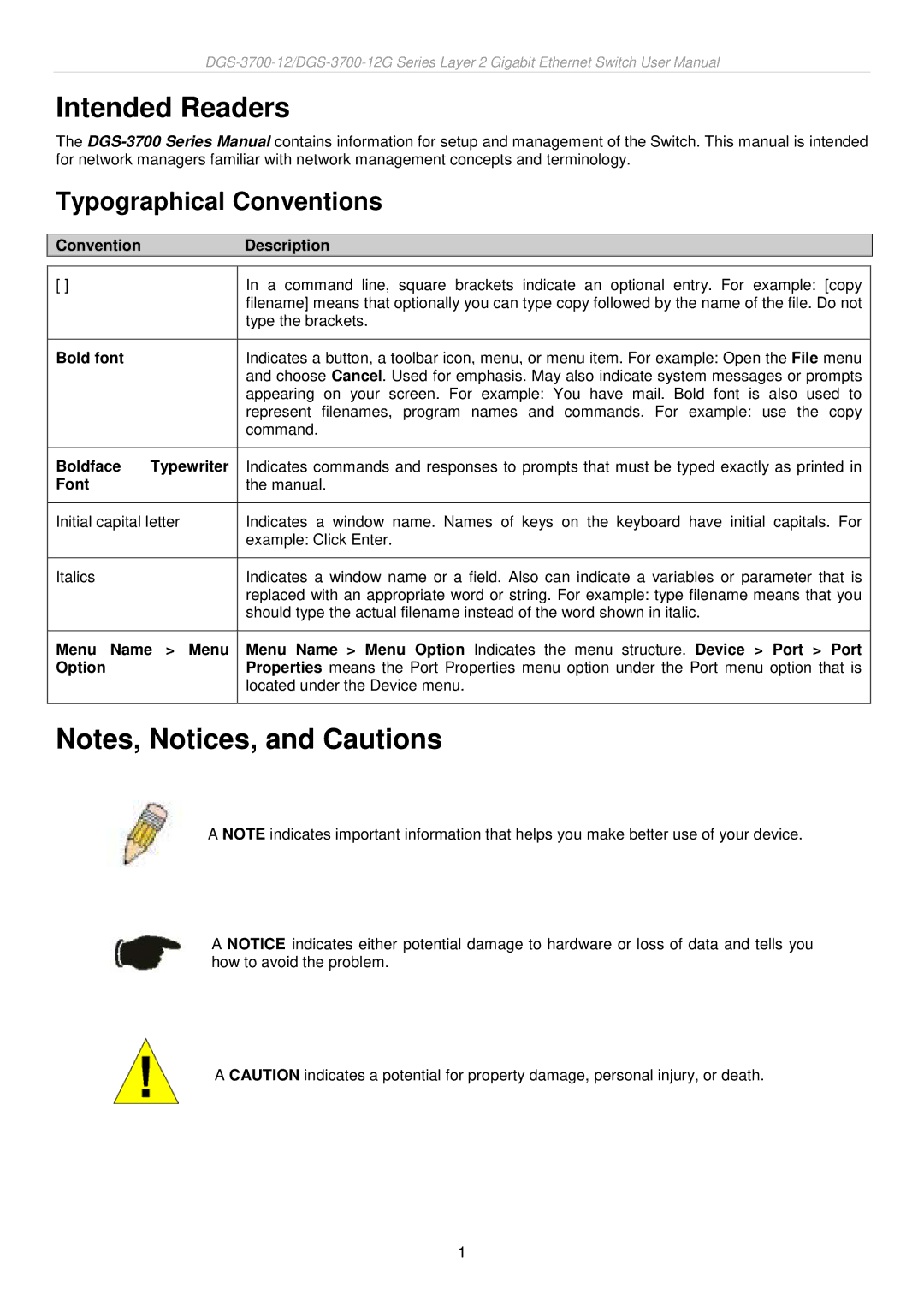
Intended Readers
The
Typographical Conventions
Convention |
| Description |
|
|
|
[ ] |
| In a command line, square brackets indicate an optional entry. For example: [copy |
|
| filename] means that optionally you can type copy followed by the name of the file. Do not |
|
| type the brackets. |
|
|
|
Bold font |
| Indicates a button, a toolbar icon, menu, or menu item. For example: Open the File menu |
|
| and choose Cancel. Used for emphasis. May also indicate system messages or prompts |
|
| appearing on your screen. For example: You have mail. Bold font is also used to |
|
| represent filenames, program names and commands. For example: use the copy |
|
| command. |
|
|
|
Boldface | Typewriter | Indicates commands and responses to prompts that must be typed exactly as printed in |
Font |
| the manual. |
|
| |
Initial capital letter | Indicates a window name. Names of keys on the keyboard have initial capitals. For | |
|
| example: Click Enter. |
|
|
|
Italics |
| Indicates a window name or a field. Also can indicate a variables or parameter that is |
|
| replaced with an appropriate word or string. For example: type filename means that you |
|
| should type the actual filename instead of the word shown in italic. |
|
| |
Menu Name > Menu | Menu Name > Menu Option Indicates the menu structure. Device > Port > Port | |
Option |
| Properties means the Port Properties menu option under the Port menu option that is |
|
| located under the Device menu. |
|
|
|
Notes, Notices, and Cautions
A NOTE indicates important information that helps you make better use of your device.
A NOTICE indicates either potential damage to hardware or loss of data and tells you how to avoid the problem.
A CAUTION indicates a potential for property damage, personal injury, or death.
1
